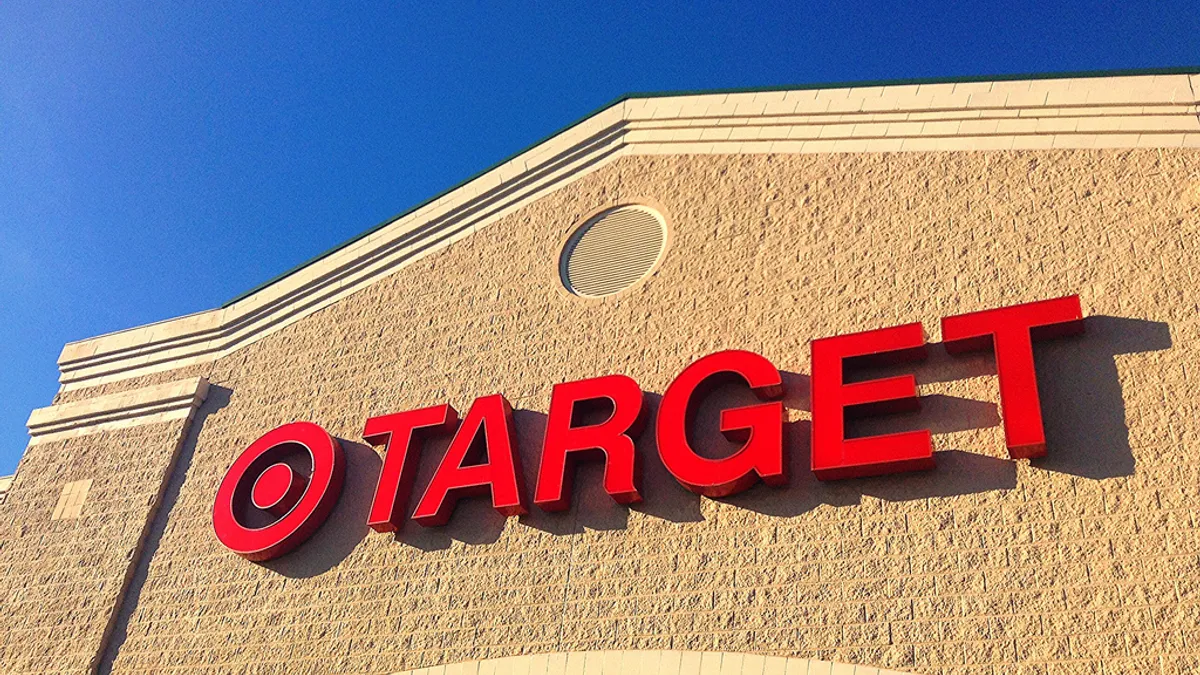Dive Brief:
- Target's Corporate Responsibility Report highlighted several company advancements in the sustainable grocery space, according to Progressive Grocer. The retailer reported a 139% increase in organic offerings, and 162 new sustainable packaging designs that both incorporate more recycled material and are recyclable.
- The big box retailer also cited 68% completion of its goal to remove all artificial preservatives, flavors, sweeteners and colors from private label children's products — like macaroni and cheese and fruit snacks — by 2018. Target has also expanded its Archer Farms coffee portfolio to include 21 more direct trade options.
- “We’re committed to making our business economically, environmentally and socially sustainable," Jennifer Silberman, Target’s VP for corporate social responsibility, told Progressive Grocer. “And beyond that, we have an opportunity to transform the guest experience beyond the register in a way that unlocks long-term business value. With the power of our team, and our scale as one of the country’s largest retailers, we hope to be a catalyst for change across the industry.”
Dive Insight:
Target has struggled to grow its grocery business, plagued by perishable food losses that experts estimate are higher than the industry average. As a result, the big box retailer has created dedicated grocery teams trained to specifically oversee packaged and fresh food and better interact with shoppers who enter the grocery section of the store.
And while Target claims it isn't aiming to compete with Walmart and Amazon in grocery — the category only accounts for one-fifth of the retailer's yearly sales — this report reflects the investments it continues to make in the space.
In March, Target appointed Jeff Burt, former president of the Fred Meyer division of Kroger, as senior vice president of grocery, fresh food and beverage. Burt officially joined the company on April 10, and pledged to work to create differentiated shopper experiences through a curated assortment of products and prices.
It will be interesting to see if the retailer's changes to its private label formulas drive more consumer purchases in its food department. A 139% increase in organic offerings is a large change, especially as demand for all things organic continues to grow in the mainstream. Clean labels are also at the top of consumer wish lists, and most are willing to pay more for products free from artificial ingredients.
Only time will tell if initiatives like this will be enough to differentiate Target from competitors and lure more shoppers to its grocery aisle — a task even more challenging in the wake of the Amazon-Whole Foods deal.









